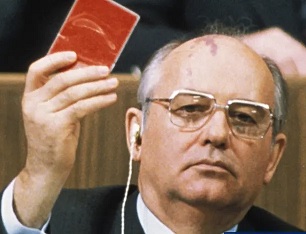 Moscow, Aug. 31 (DP.net).– Mikhail Gorbachev's death is being mourned by the West as the loss of a champion of freedom who helped end the Cold War. He passed away in Moscow on Tuesday at a time when his legacy of reconciliation with the West and domestic reform has been left in tatters in the wake of Russian President Vladimir Putin’s war in Ukraine. However, from Washington to Brussels, Gorbachev was widely acclaimed after the news of his death. His real strength was his charm and decency. He may have changed the world, but he was a real human being first and foremost according to those who knew him personally. Among many others, Prime Minister Margaret Thatcher found in Gorbachev someone she could "do business with." Then, through her, U.S. President Ronald Reagan came around to the view that Gorbachev was indeed an authentic partner in the peace and rapprochement process.
Moscow, Aug. 31 (DP.net).– Mikhail Gorbachev's death is being mourned by the West as the loss of a champion of freedom who helped end the Cold War. He passed away in Moscow on Tuesday at a time when his legacy of reconciliation with the West and domestic reform has been left in tatters in the wake of Russian President Vladimir Putin’s war in Ukraine. However, from Washington to Brussels, Gorbachev was widely acclaimed after the news of his death. His real strength was his charm and decency. He may have changed the world, but he was a real human being first and foremost according to those who knew him personally. Among many others, Prime Minister Margaret Thatcher found in Gorbachev someone she could "do business with." Then, through her, U.S. President Ronald Reagan came around to the view that Gorbachev was indeed an authentic partner in the peace and rapprochement process.
Nevertheless, Mikhail Gorbachev was a contradictory figure; his legacy complex. Hailed in the West as a democrat and liberator of his people –which he genuinely was– he increasingly became despised by many within Russia for dismantling the Soviet Union as a Great Power.
Mikhail Sergeyevich Gorbachev, (born March 2, 1931, Privolnoye, Stavropol kray, Russia, U.S.S.R.), Soviet official, general secretary of the Communist Party of the Soviet Union (CPSU) from 1985 to 1991, and president of the Soviet Union in 1990-91. Once he achieved the highest position in the party in 1985 he embarked on a pell-mell program of reform. It was centered on two ideas, that of "perestroika" –the restructuring of the political and economic system– and "glasnost" –the end of censorship and the introduction of freedom of speech and the press. Ultimately, his efforts to democratize his country's political system and decentralize its economy led to the downfall of the Soviet Union as an imperialist and expansionist power.
He was instrumental in ending the Cold War and solidifying a peaceful rapprochement with all democratic countries sponsored by the triumvirate of Gorbachev himself, President Ronald Reagan and Pope John Paul II,
His intention to turn an empire, in which one nationality dominated over subordinate peoples, into a genuinely democratic federation of equal nations was approved by more than three-quarters of those who voted in a referendum in March 1991.
But a few months later, that plan foundered when some of his generals and secret police agents launched a coup against him. The plotters failed, but the winner of the three-day standoff was not Gorbachev, but Yeltsin. Eventually, it opened the doors to the authoritarian rule of Vladimir Putin.
A great emancipator, Gorbachev left a mixed legacy. He expanded freedom for millions but at the same time unleashed roiling waves of nationalism and left the upturned soil for the renewed authoritarianism that is shaking the peace in the world today.
Comments powered by CComment